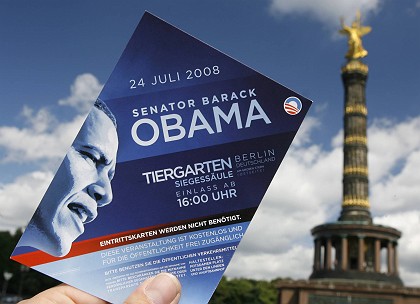Republican presidential contender Mitt Romney committed the cardinal sin of telling the truth when he answered a question from NBC’s Brian Williams about Britain’s readiness on the eve of the Olympic Games. It was only a year ago, for example, that the host city of London erupted into massive riots and looting. (The British press, now giving Romney a hard time for his comments, raised the alarm: “With the London Olympics less than a year away, our reputation is being damaged at the worst moment.”) Romney has clearly been following the news about strikes, security problems, and flag mix-ups–and may be hearing more scuttlebutt behind the scenes.
Romney’s gaffe fits Charles Krauthammer’s memorable definition–i.e. a gaffe is when a politician accidentally tells you what he really believes. And none less than Piers Morgan, reporting from Britain, came to his defense: “I thought he was absolutely right, wasn’t he? I mean, it’s no secret over here.” But there’s little room for truth in diplomacy. As the seventeenth-century English diplomat Sir Henry Wotton reportedly said: “An Ambassador is an honest man, sent to lie abroad for the good of his country.” Romney’s gaffe is, in fact, a point against him, just as he is trying to establish his foreign policy credentials. After all, he is promising to restore warm relations with our allies, and instead he has kicked up a diplomatic kerfuffle that is surely provoking laughs in Chicago.
Perhaps the Obama campaign should be glad for short memories. In 2008, as Barack Obama prepared for his own foreign adventure, he became embroiled in a far bigger dust-up over his request to deliver an address at the Brandenburg Gate. The plan–aimed not just at impressing American audiences, but in contrasting his policies to those in the aggressive tradition of Ronald Reagan–struck Chancellor Angela Merkel as inappropriate. After much debate and discomfort, the Obama campaign moved the address to the Victory Column–a symbol of German imperialism, placed in its present location by Adolf Hitler, as critics noted at home and abroad.
These diplomatic stumbles happen because whatever their diplomatic talents, presidential candidates do not go abroad to impress foreigners but to impress Americans. The audience for everything they do is domestic, and if that means offending their hosts, so be it–few American voters care what the British or Germans think, anyway.
The same holds true for the foreign politicians receiving them. Prime Minister David Cameron’s reaction to Romney’s comment–“Of course it’s easier if you hold an Olympic Games in the middle of nowhere,” i.e. Utah–is astonishingly rude, especially since Romney may very well be sitting in the Oval Office in a few months’ time. Likewise, London mayor Boris Johnson’s public calling out of Romney’s comments–“a guy called Mitt Romney”–is bizarre, especially given that Johnson is a conservative who made no attempt in his journalistic past to hide his admiration for the GOP (“Way to Go, Dubya” was his comment on the 2004 Republican national convention).
The only way to make sense of these diplomatic affronts–which compound and exceed anything Romney said or intended–is to realize that Cameron and Johnson are both, like Romney, playing to the home crowd. Cameron in particular is in political trouble, governing a shaky coalition, facing a widening phone hacking scandal, and having presided over half-hearted fiscal and economic reforms that have thus far failed to turn Britain’s economy around. Cameron has often seemed faintly ashamed of conservative ideas–he is no Maggie Thatcher–and Johnson has likewise toned down his rhetoric to govern a city that elected a left-wing radical as his predecessor.
No matter how much Obama has damaged the “special relationship” between the U.S. and the U.K., he is still “cool”–he is an American celebrity, above all, beloved by the Hollywood stars that remain our most popular exports–and therefore there are political points to be scored by knocking his stiff, besuited opponent. Cameron and Johnson have also likely been damaged by the well-publicized flaws of the Olympics–what better way to distract the press and the populace than by waving the flag at the curious Yank from the middle of nowhere?
The only actual diplomatic element to all of this is that for now, at least, Cameron still has to deal with Obama, and no matter what he might think of the incumbent, he cannot afford to be seen to be undermining him. So while offering Romney an audience–which he emphatically denied to French socialist candidate (now president) François Hollande–he may feel he has to compensate by giving Obama some political ammunition to work with.
Romney’s gaffe will do nicely in that regard. As long as no one remembers that tiff about the Brandenburg Gate.

COMMENTS
Please let us know if you're having issues with commenting.